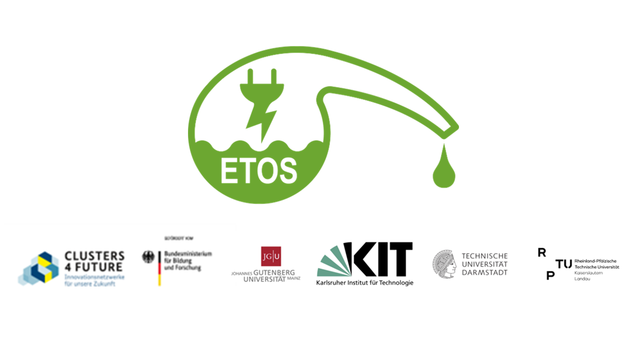Projects
Single Step DME Synthesis
The hydrogenation of mixed CO/CO2 feeds leads to dimethyl ether (DME), an intermediate for further conversion to fuel-type hydrocarbons (also DME itself is already a potential alternative to conventional diesel fuel). The single-stage process requires catalysts that catalyze both the formation of methanol and its dehydration to DME. The single-stage conversion of CO2/H2 to DME is comparatively less studied than that of CO/H2, but in addition to avoiding an energetically unfavourable RWGS step, it offers the advantage of utilizing CO2 directly as a raw material.
The main tasks in this research topic are the development and research of highly active hybrid and multifunctional catalysts, which have a methanol forming and a dehydrating functionality. The production of new catalyst materials includes the comprehensive characterisation of morphology and physical parameters, surface properties and bulk materials as well as the investigation of the scale-up capability of syntheses.
Studies on single-stage DME synthesis are carried out in reactor systems, which enable the examination of model catalysts as well as the determination of the reaction-kinetic parameters relevant for process engineering and dynamic operating modes.
Electrification of technical organic syntheses - ETOS
The "Electrification of Technical Organic Syntheses (ETOS)" network strives to establish an interdisciplinary innovation network that focuses on the transfer of electroorganic syntheses from laboratory to industrial scale. The aim is to establish a sustainable electrochemical production of organic materials and chemicals (power-to-chemicals) as a key technology for the chemical industry in Germany. ETOS is the first major technology platform that links organic synthesis chemistry and (electro)chemical process and reaction technology with the development of innovative solutions and key technologies for sustainable, robust and future-proof processes and products along the entire value chain. The network will strengthen and future-proof Germany as an industrial hub and ensure sustainable chemical production with regard to the future-oriented aspects of energy and resource efficiency, defossilisation of chemical processes all the way to CO2 neutrality and a circular economy.
The IKFT contributes with the strategic project Balanced Scorecard aiming to develop and apply a standard for the structured and holistic evaluation of projects in cooperation with the research projects in ETOS. The cluster is provided with a toolbox that allows the newly developed processes to be evaluated at an early stage and categorized with regard to the state of the art. In this way, targeted process development is supported at an early development stage.
Informationen ETOS-Cluster:
https://en.etos.uni-mainz.de/
https://www.clusters4future.de/die-zukunftscluster/die-zukunftscluster-der-zweiten-wettbewerbsrunde/etos
Informationen Projekt Balanced Scorecard:
https://www.ikft.kit.edu/english/775_1026.php

